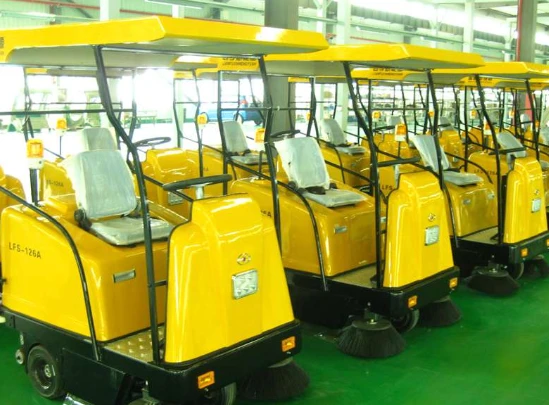
-
 Afrikaans
Afrikaans -
 Albanian
Albanian -
 Amharic
Amharic -
 Arabic
Arabic -
 Armenian
Armenian -
 Azerbaijani
Azerbaijani -
 Basque
Basque -
 Belarusian
Belarusian -
 Bengali
Bengali -
 Bosnian
Bosnian -
 Bulgarian
Bulgarian -
 Catalan
Catalan -
 Cebuano
Cebuano -
 China
China -
 China (Taiwan)
China (Taiwan) -
 Corsican
Corsican -
 Croatian
Croatian -
 Czech
Czech -
 Danish
Danish -
 Dutch
Dutch -
 English
English -
 Esperanto
Esperanto -
 Estonian
Estonian -
 Finnish
Finnish -
 French
French -
 Frisian
Frisian -
 Galician
Galician -
 Georgian
Georgian -
 German
German -
 Greek
Greek -
 Gujarati
Gujarati -
 Haitian Creole
Haitian Creole -
 hausa
hausa -
 hawaiian
hawaiian -
 Hebrew
Hebrew -
 Hindi
Hindi -
 Miao
Miao -
 Hungarian
Hungarian -
 Icelandic
Icelandic -
 igbo
igbo -
 Indonesian
Indonesian -
 irish
irish -
 Italian
Italian -
 Japanese
Japanese -
 Javanese
Javanese -
 Kannada
Kannada -
 kazakh
kazakh -
 Khmer
Khmer -
 Rwandese
Rwandese -
 Korean
Korean -
 Kurdish
Kurdish -
 Kyrgyz
Kyrgyz -
 Lao
Lao -
 Latin
Latin -
 Latvian
Latvian -
 Lithuanian
Lithuanian -
 Luxembourgish
Luxembourgish -
 Macedonian
Macedonian -
 Malgashi
Malgashi -
 Malay
Malay -
 Malayalam
Malayalam -
 Maltese
Maltese -
 Maori
Maori -
 Marathi
Marathi -
 Mongolian
Mongolian -
 Myanmar
Myanmar -
 Nepali
Nepali -
 Norwegian
Norwegian -
 Norwegian
Norwegian -
 Occitan
Occitan -
 Pashto
Pashto -
 Persian
Persian -
 Polish
Polish -
 Portuguese
Portuguese -
 Punjabi
Punjabi -
 Romanian
Romanian -
 Russian
Russian -
 Samoan
Samoan -
 Scottish Gaelic
Scottish Gaelic -
 Serbian
Serbian -
 Sesotho
Sesotho -
 Shona
Shona -
 Sindhi
Sindhi -
 Sinhala
Sinhala -
 Slovak
Slovak -
 Slovenian
Slovenian -
 Somali
Somali -
 Spanish
Spanish -
 Sundanese
Sundanese -
 Swahili
Swahili -
 Swedish
Swedish -
 Tagalog
Tagalog -
 Tajik
Tajik -
 Tamil
Tamil -
 Tatar
Tatar -
 Telugu
Telugu -
 Thai
Thai -
 Turkish
Turkish -
 Turkmen
Turkmen -
 Ukrainian
Ukrainian -
 Urdu
Urdu -
 Uighur
Uighur -
 Uzbek
Uzbek -
 Vietnamese
Vietnamese -
 Welsh
Welsh -
 Bantu
Bantu -
 Yiddish
Yiddish -
 Yoruba
Yoruba -
 Zulu
Zulu
Feb . 15, 2025 16:00
Back to list
Clarifiers & Settlers
Molded grating has rapidly gained attention and appreciation across various industries owing to its versatile applications and remarkable benefits. Unlike traditional materials such as wood, metal, or basic plastic, molded gratings offer a compelling array of features that fulfill the modern-day requirements for robust, durable, and environmentally-friendly industrial products.
Authoritativeness in the realm of molded gratings stems from its compliance with international standards and its proven performance in demanding scenarios. Many molded gratings meet rigorous standards such as ASTM, OSHA, and ANSI, attesting to their safety and reliability. The specialization of production facilities and extensive research and development ensure that these products continually meet and exceed expectations set by industry benchmarks. They maintain structural integrity and load-bearing capacity that surpass conventional materials, which can be crucial in high-stress environments like chemical processing plants or industrial walkways. Trustworthiness is inherent in molded grating through its consistent performance and ecological advantages. Manufacturers of molded gratings are increasingly committing to sustainable practices, using recyclable materials and energy-efficient processes. This commitment not only supports environmental goals but also aligns with the increasing demand for sustainable solutions in industrial design. Moreover, customer testimonials and case studies underscore their reliability, with molded gratings consistently delivering superior performance in diverse conditions worldwide. In summary, molded gratings embody a blend of experience, expertise, authoritativeness, and trustworthiness that cater to the complex needs of modern industries. As sectors continuously evolve and face new challenges, molded gratings stand as a testament to innovation not only in material engineering but also in addressing the foundational desire for safe, cost-effective, and sustainable products. This makes them an exceptional choice for forward-thinking organizations seeking to enhance their operational efficiency and safety standards.


Authoritativeness in the realm of molded gratings stems from its compliance with international standards and its proven performance in demanding scenarios. Many molded gratings meet rigorous standards such as ASTM, OSHA, and ANSI, attesting to their safety and reliability. The specialization of production facilities and extensive research and development ensure that these products continually meet and exceed expectations set by industry benchmarks. They maintain structural integrity and load-bearing capacity that surpass conventional materials, which can be crucial in high-stress environments like chemical processing plants or industrial walkways. Trustworthiness is inherent in molded grating through its consistent performance and ecological advantages. Manufacturers of molded gratings are increasingly committing to sustainable practices, using recyclable materials and energy-efficient processes. This commitment not only supports environmental goals but also aligns with the increasing demand for sustainable solutions in industrial design. Moreover, customer testimonials and case studies underscore their reliability, with molded gratings consistently delivering superior performance in diverse conditions worldwide. In summary, molded gratings embody a blend of experience, expertise, authoritativeness, and trustworthiness that cater to the complex needs of modern industries. As sectors continuously evolve and face new challenges, molded gratings stand as a testament to innovation not only in material engineering but also in addressing the foundational desire for safe, cost-effective, and sustainable products. This makes them an exceptional choice for forward-thinking organizations seeking to enhance their operational efficiency and safety standards.
Next:
Related Products









